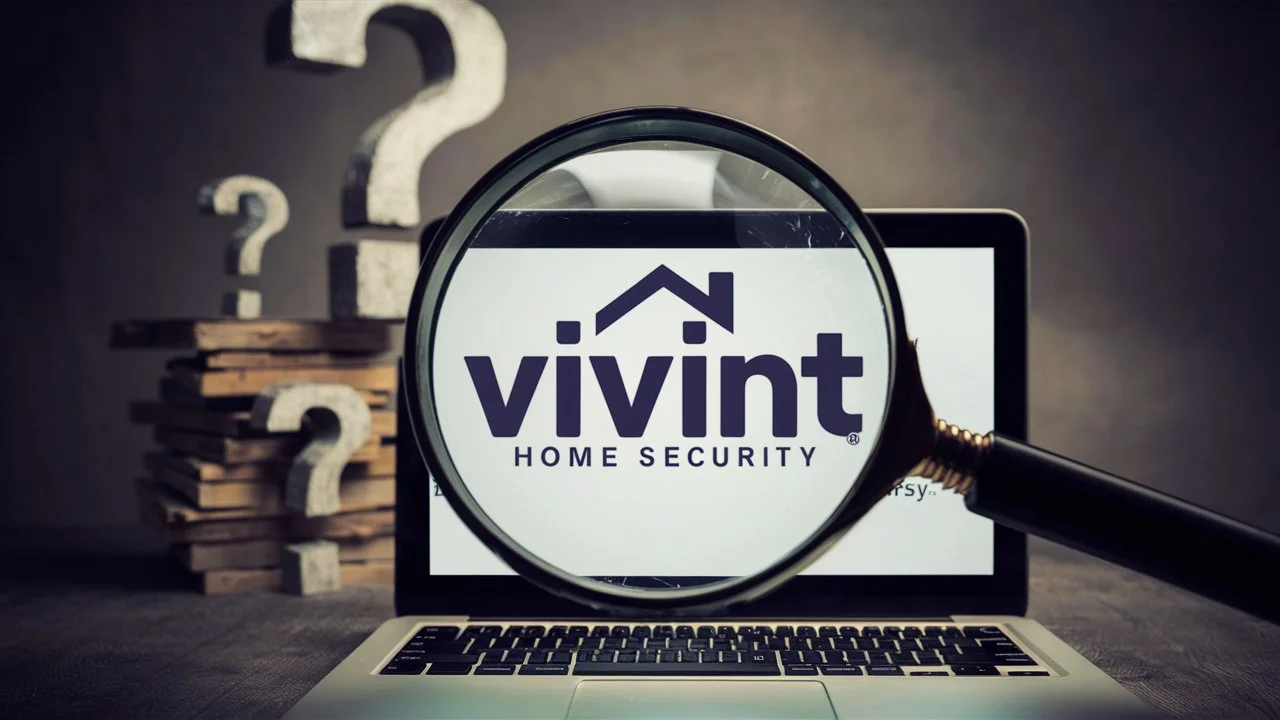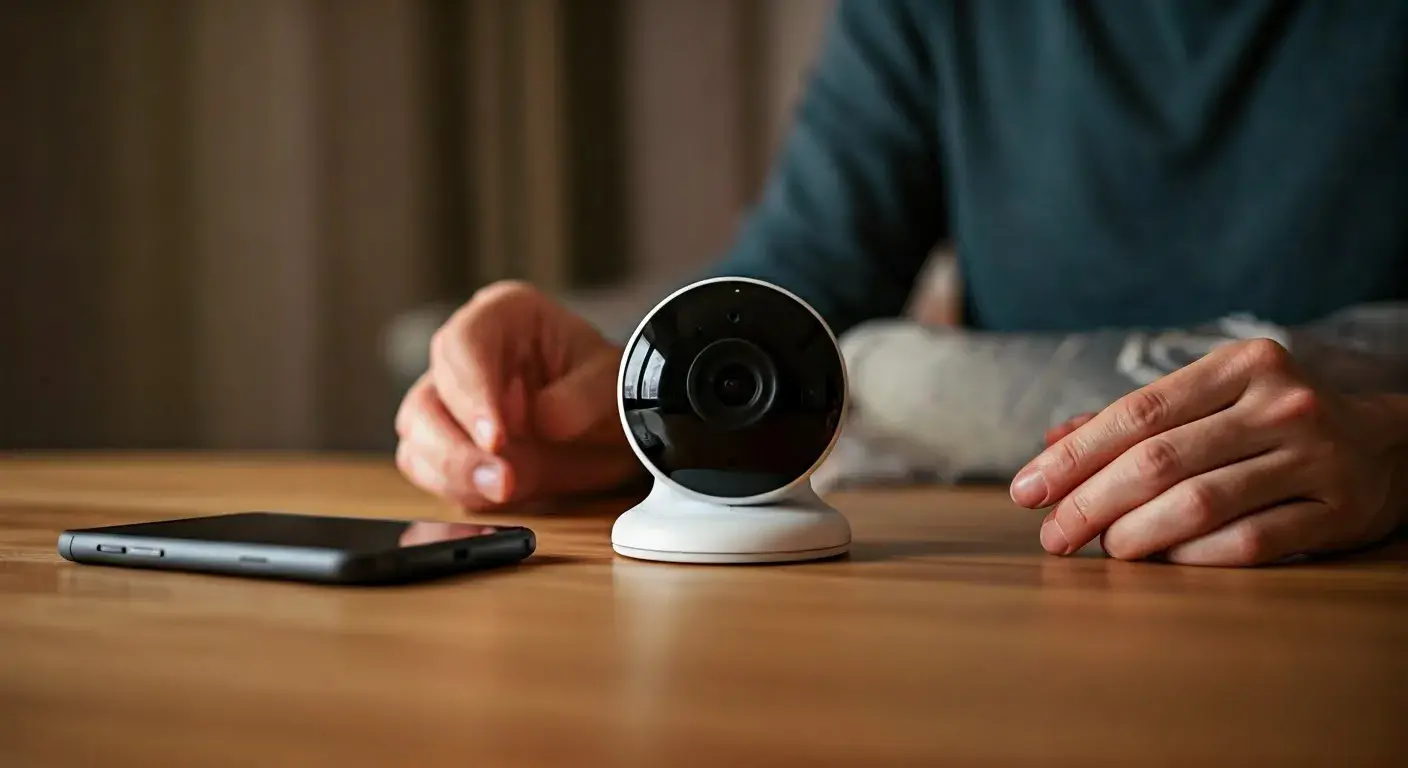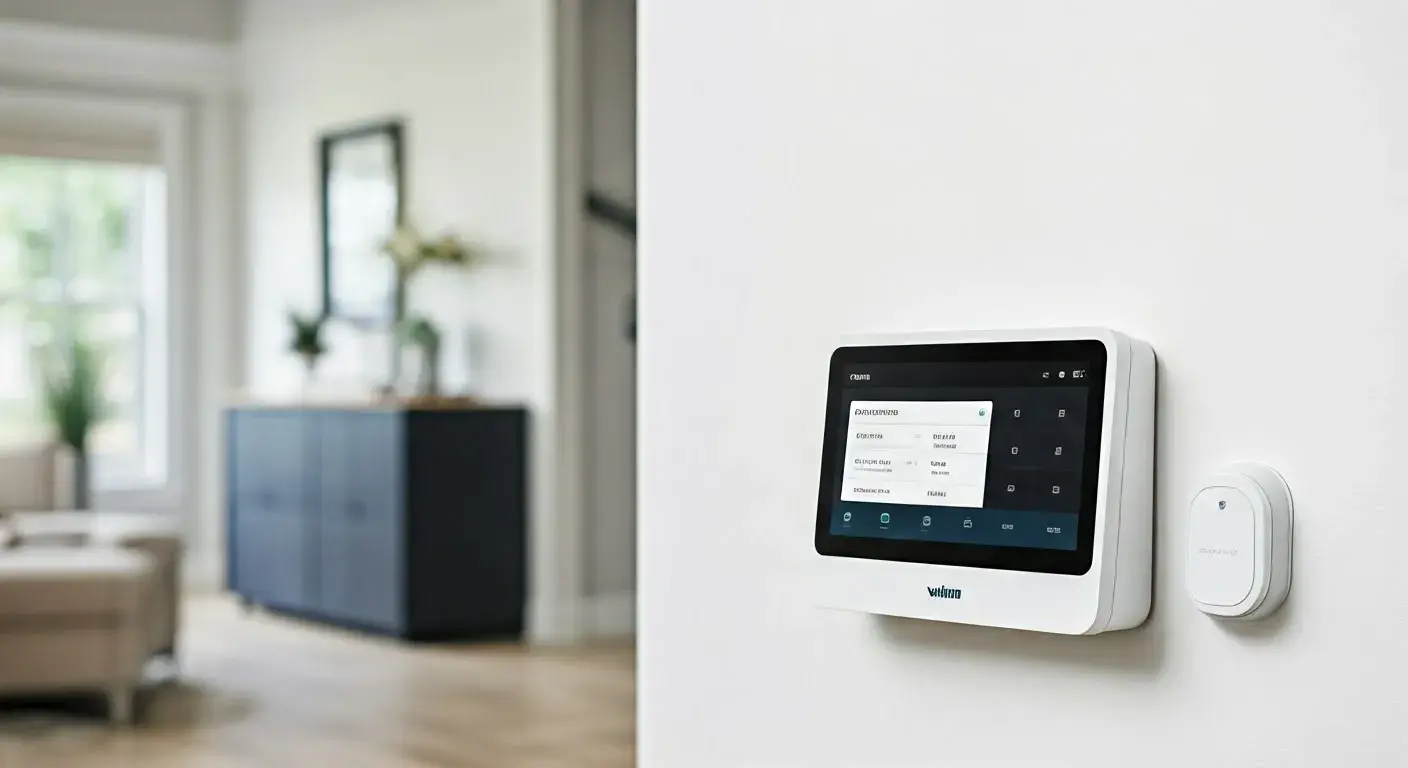The world of Home Security systems and smart home automation is booming, and Vivint has positioned itself as a leading player. With sleek technology, integrated systems, and a prominent presence, the company has garnered millions of customers. Yet, a persistent question shadows its success, echoing through online forums and consumer review sites: Is Vivint a pyramid scheme?
This question isn't asked in a vacuum. It stems from Vivint's aggressive, commission-driven, door-to-door sales force and a flood of online complaints from both former employees and customers. The allegations range from high-pressure tactics and misleading offers to exploitative labor practices. But do these criticisms add up to an illegal pyramid scheme, or are they the symptoms of a controversial but ultimately legal direct sales model?
In this detailed investigation, we will dissect Vivint's business structure, compare it to the legal definition of a pyramid scheme, and analyze the root of its controversial reputation. We will provide a fact-based, unbiased analysis to give you a clear understanding of how Vivint operates, allowing you to form your own educated conclusion.
What is Vivint? Company Background and Services
Before we can analyze its structure, we must first understand what Vivint is.
Vivint Smart Home, Inc. is a publicly traded company (NYSE: VVNT) that provides integrated smart home systems. Founded in 1999 as APX Alarm Security Solutions by Todd Pedersen and Keith Nellesen, the company rebranded to Vivint in 2011 to reflect its expansion beyond basic security into comprehensive home automation.
Core Products and Services:
-
Home Security: 24/7 professional monitoring, security panels, door and window sensors, motion detectors, and security cameras.
-
Smart Home Automation: Smart locks, thermostats, lighting controls, garage door controllers, and video doorbells.
-
Solar Solutions: Through Vivint Solar (now a separate entity under Sunrun), the company also ventured into solar panel installation and financing.
Vivint’s primary business model is selling these products and services directly to homeowners through long-term contracts, typically ranging from 60 to 66 months (5 to 5.5 years). Customers pay an upfront installation cost (often rolled into financing) and a recurring monthly fee for monitoring and access to the smart home ecosystem. This is a standard model in the home security industry, shared by competitors like ADT.
What is a Pyramid Scheme? The FTC Definition
To determine if Vivint is a pyramid scheme, we must first establish a clear, legal baseline for what a pyramid scheme actually is. The U.S. Federal Trade Commission (FTC) is the primary consumer protection agency that defines and prosecutes these illegal models.
Key Characteristics of a Pyramid Scheme:
-
Emphasis on Recruitment Over Product Sales: The primary focus is on recruiting participants into the scheme. Money is made primarily by bringing in new members who pay to join, rather than through the sale of actual products or services to the public.
-
Buy-In Fees: Participants are often required to pay a significant upfront cost to join, which is then funneled upstream to those who recruited them.
-
Inventory Loading: Participants are pressured to buy large, non-refundable amounts of inventory that are difficult or impossible to sell to end consumers.
-
Promises of Payment for Recruitment: The compensation plan heavily rewards recruiting new members, often more than it rewards actual retail sales.
-
Unsustainable Structure: The model is mathematically impossible to sustain, as it requires an endless chain of recruits to pay those above them. It inevitably collapses when the pool of recruits dries up.
Pyramid Scheme vs. Legitimate MLM vs. Direct Sales
It's crucial to distinguish a pyramid scheme from a legitimate Multi-Level Marketing (MLM) company or a direct sales organization.
-
Pyramid Scheme: Illegal. Focus is on recruitment. Products are an afterthought or don't exist.
-
Legitimate MLM: Legal, but often controversial. Sells real products or services. Allows participants to earn from both their own sales and the sales of those they recruit. A legitimate MLM's revenue should primarily come from selling products to end consumers, not from recruiting.
-
Direct Sales / Commission Sales: A standard sales model where representatives are paid purely on commission for the products they sell themselves. There is no "downline" or team to build.
The FTC states that a business is likely a pyramid scheme if "the money from recruits is paid to earlier participants, and the emphasis is on recruitment rather than sales to the public."
Vivint’s Business Model Explained
Now, let's apply this framework to Vivint. How does Vivint actually operate?
The Door-to-Door Sales Engine
Vivint is famous for its massive, seasonal, door-to-door sales force. Each summer, thousands of college students and young adults are hired as "Sales Representatives" or "Door-to-Door Experts." They are trained in sales techniques and deployed across the country to generate new customer acquisitions.
This is a classic direct sales approach, reminiscent of companies like Kirby vacuum cleaners or Southwestern Advantage. The representatives are not building a "downline" of other salespeople; they are focused on one primary task: selling Vivint systems to homeowners.
Compensation and Team Structure
Vivint's sales reps are typically 100% commission-based. They do not receive a salary or an hourly wage. Their earnings are a direct percentage of the sales they close. This creates an inherently high-pressure environment, as no sale means no paycheck.
The sales structure does have a hierarchy, but it is a standard corporate and sales management structure, not an MLM one:
-
Sales Representative: The individual knocking on doors.
-
Sales Lead / Team Lead: A more experienced rep who may help train newcomers.
-
Field Manager / Sales Manager: Oversees a team of reps in a specific region.
-
Regional and National Directors: Higher-level management.
Managers and directors earn overrides based on the performance of their entire team or region. This is a common practice in virtually all sales-driven industries—from car dealerships to tech sales. A manager's bonus is tied to their team's performance. This is not the same as an MLM, where an individual at the top earns a cut from the personal sales and recruitment of multiple levels of people beneath them, whom they did not directly hire or manage.
Crucially, a Vivint sales rep cannot sign up other people to become sales reps and earn a perpetual commission from their sales. They are compensated for the customers they acquire. Managers are paid for managing a team, not for building a personal downline of recruits.
Why Some People Think Vivint is a Pyramid Scheme
Given the explanation above, why does the "pyramid scheme" label persist? The confusion arises from several overlapping factors that, when viewed superficially, can resemble the negative aspects of an MLM or pyramid scheme.
1. High-Pressure Recruitment for Sales Jobs
Vivint aggressively recruits for its sales force, often using glamorized language about "unlimited income potential" and "leadership opportunities." To a newcomer, the intense focus on joining the team can feel like the recruitment focus of a pyramid scheme. However, they are recruiting for jobs, not for people to pay to join a scheme. The recruit is being hired to perform a function (sales), not to buy a starter kit and recruit their friends.
2. High Attrition and "Grind" Culture
The door-to-door sales job is notoriously difficult. Long hours, rejection, and the pressure of commission-only pay lead to a very high turnover rate. Many former sales reps leave after a short, unsuccessful stint, feeling burned and exploited. They may describe the experience as a "scam" because they didn't make money, which can easily get conflated with the idea of a "pyramid scheme."
3. Misunderstanding the Management Structure
When a sales rep hears that their manager earns a percentage of the team's sales, they might interpret this as an "upline" earning from their "downline" labor. While structurally similar in a flowchart, the context is different. In a corporate sales structure, the manager is a supervisor with operational responsibilities (training, logistics, payroll). In an MLM, the upline is often just a sponsor with no formal management duties.
4. Aggressive Sales Tactics and Customer Complaints
This is the most significant source of Vivint's negative reputation. There is a vast number of customer complaints alleging:
-
Misleading Sales Pitches: Reps allegedly misrepresenting costs, contract terms, or the capabilities of the equipment.
-
Predatory Practices: Targeting elderly or vulnerable homeowners.
-
Contract Disputes: Making it extremely difficult to cancel service or break long-term contracts.
When customers feel they've been tricked into a bad deal, they often use the word "scam." This consumer-facing "scam" allegation then blends with the employee-facing criticisms, creating a powerful narrative that the entire company is illegitimate.
Is Vivint Actually a Pyramid Scheme? A Fact-Based Verdict
Based on the FTC's definition and a thorough analysis of Vivint's operations, the clear and factual answer is: No, Vivint is not a pyramid scheme.
Here is the critical reasoning:
-
Revenue Comes from Product Sales, Not Recruitment: Vivint Smart Home, Inc. is a product-based company. Its primary source of revenue is the monthly fees paid by millions of customers for security monitoring and smart home services. It is a publicly-traded company with audited financial statements that reflect this. A pyramid scheme has no real product; Vivint's products are tangible, installed, and used.
-
Sales Reps Do Not Pay to Join: While the job is commission-only, sales representatives do not pay an upfront "buy-in" fee to Vivint to get a job. They are interviewed and hired. They may have to pay for their own background check or travel, which is common in many jobs, but they are not purchasing a starter kit or inventory to join the business.
-
No MLM-Style Recruitment Commissions: A Vivint sales rep's income is directly tied to the systems they sell. They do not earn commissions from the sales of other reps they refer to the company. There is no personal "downline" to build.
-
It is a Direct Sales Model, Not an MLM: The core of Vivint's sales is direct-to-consumer, door-to-door sales. The hierarchy is a standard employment-based sales management structure, not an MLM compensation plan.
The confusion lies in conflating a high-pressure, commission-based sales job with an illegal business structure. The former can be ethically challenging and financially precarious for employees, but it is not illegal. The latter is a fraudulent model that is unsustainable and illegal.
Vivint’s Legal Issues & Controversies
While Vivint is not a pyramid scheme, it has faced significant legal and regulatory scrutiny. It is essential to distinguish these issues from a pyramid structure, as they primarily relate to sales practices and customer acquisition methods.
The FTC Lawsuit and Settlement (2022)
In 2022, the FTC filed a lawsuit against Vivint, alleging that its sales representatives improperly used credit reports to sign up customers for expensive contracts.
-
The Allegation: The FTC claimed that Vivint sales reps would access the credit reports of prospective customers (e.g., by using a former tenant's name or other personal information) to qualify them for financing they hadn't authorized. This allowed reps to activate systems and lock homeowners into long-term contracts without their informed consent.
-
The Outcome: Vivint settled with the FTC for a $20 million penalty and was ordered to implement a comprehensive privacy and data security program. The FTC also required Vivint to delete any improperly collected consumer information.
This lawsuit is a serious black mark on Vivint's record and confirms allegations of unethical sales behavior. However, it was a case of identity misuse and unauthorized financing, not of operating a pyramid scheme.
Other Lawsuits and BBB Profile
Vivint has been the subject of numerous other class-action lawsuits, primarily from customers related to early termination fees and contract disputes. The company's profile with the Better Business Bureau (BBB) has historically been poor, with a low grade and a high volume of customer complaints, though it has shown recent improvement. These complaints almost universally center on billing, contracts, and customer service, not on the fundamental business structure, which is a pyramid.
What Former Employees and Customers Say
A balanced view requires listening to the voices of those who have directly engaged with Vivint.
The Employee Experience
The Negative: On platforms like Glassdoor and Reddit, many former sales reps describe a "grind" culture. They speak of 80-hour weeks, relentless pressure to meet quotas, and often leaving with little to no money after a summer of work. Stories of managers encouraging unethical sales tactics to close deals are common. For these individuals, the experience was negative and financially unrewarding.
The Positive: Conversely, many successful former reps and managers credit Vivint with teaching them invaluable sales, resilience, and entrepreneurial skills. Some top performers earned significant six-figure incomes during their summers. They view the model as a meritocracy where hard work is directly rewarded.
The Customer Experience
The Negative: Customer complaints are plentiful. The most common themes are shock at the high early termination fees (often over $1,000), difficulty canceling service, and feeling misled by the initial sales pitch about pricing and contract length.
The Positive: Satisfied customers often praise the technology itself—the seamless integration of the smart home ecosystem, the reliability of the security monitoring, and the user-friendliness of the app. For these users, the product delivers on its promises, justifying the cost.
FTC and Legal Guidelines on Sales Models
The FTC's stance provides the final clarity on this issue. The agency's guidance consistently highlights that a legitimate business must derive its revenue from the sale of products or services to ultimate users—actual consumers outside the distribution network.
Vivint passes this test. Its customers are genuine homeowners who use and pay for a security system. The sales force is a cost of customer acquisition, not the source of revenue itself. The legal actions against Vivint have been about how they acquired those customers (fraudulent credit checks, deceptive tactics), not about the underlying business model being an illegal pyramid.
How to Identify a Real Pyramid Scheme
To protect yourself, here are the definitive red flags of a true pyramid scheme:
-
Heavy Focus on Recruitment: You're encouraged to recruit others more than you are to sell a product.
-
Large Upfront Costs: You must pay hundreds or thousands of dollars to join or for mandatory inventory.
-
No Tangible Product: The product is vague, overpriced, or has no real market value outside the network.
-
Promises of Passive Income: Emphasis on getting rich by building a "downline" that does the work for you.
-
Complex Compensation Plans: The payment structure is confusing, designed to obscure the fact that money comes from recruits.
If a "business opportunity" exhibits these traits, it is almost certainly a pyramid scheme and should be avoided.
Vivint vs. Other Security Companies
Comparing Vivint to its competitors highlights its unique sales approach.
| Company | Primary Sales Model | Contract Length | Key Differentiator |
|---|---|---|---|
| Vivint | Door-to-Door Direct Sales | Long-term (5+ years) | Integrated, premium smart home ecosystem sold aggressively. |
| ADT | Phone, Online, & Retail Partnerships | Long-term (3+ years) | Brand legacy and professional installation. |
| SimpliSafe | Online & Direct-to-Consumer | No long-term contract required | Flexibility, easy DIY installation, and month-to-month plans. |
| Ring | Retail (Amazon, Best Buy) | No monitoring contract required | Low-cost, a la carte DIY approach, strong brand recognition. |
| Cove | Online & Direct-to-Consumer | Long-term (1-3 years) | Competitive pricing and customer-service focus. |
As the table shows, Vivint is an outlier in its reliance on a traditional, aggressive door-to-door sales force, which is a key driver of its controversial reputation.
Pros and Cons of Vivint’s Model
Pros:
-
For Consumers: High-quality, professionally installed, integrated smart home systems. A single app to control everything.
-
For Employees: A high-reward potential for exceptional salespeople. Develops thick skin and valuable sales skills. No income cap.
-
For the Company: An effective, if controversial, method for high-volume customer acquisition.
Cons:
-
For Consumers: High-pressure sales can lead to buyer's remorse. Very expensive and rigid long-term contracts. Numerous complaints about customer service.
-
For Employees: High-risk, commission-only pay leads to financial instability for many. Grueling work conditions and high attrition.
-
For the Company: Persistent reputation issues, legal troubles, and regulatory scrutiny.
Final Verdict: Is Vivint a Pyramid Scheme?
No, Vivint Smart Home, Inc. is not a pyramid scheme.
It is a legitimate, publicly-traded company that sells real, tangible products and services. The core of its business is generating revenue from customer subscriptions, not from recruiting a sales force.
However, the confusion is understandable. Vivint employs a highly aggressive, commission-only, direct sales model that has generated a significant number of legitimate complaints regarding its sales tactics. These tactics have, at times, crossed the line into illegality, as evidenced by the FTC settlement. The high-pressure environment for both employees and customers creates a negative experience that many people understandably describe as "scam-like."
In essence, Vivint's business structure is legal, but its historical sales practices have been ethically and legally questionable.
For consumers, this means you should be extremely cautious. The product may be excellent, but ensure you fully understand the contract terms before signing anything. For potential employees, know that the sales job is a true "grind" with high risk and high potential reward—it is not a get-rich-quick scheme.
Conclusion
The question "Is Vivint a pyramid scheme?" has a clear, factual answer: it is not. The company operates a legal, product-based business. However, the door-to-door sales machine that fuels its growth is a source of intense controversy, high-pressure tactics, and documented legal issues.
When evaluating any company, it's crucial to separate the business model from its operational practices. Vivint's model is that of a direct-sales security provider. Its practices, however, have repeatedly drawn the ire of consumers and regulators. Your decision to engage with Vivint—as a customer or a job seeker—should be made with this nuanced understanding. Always do your due diligence, read the fine print, and base your decision on verified facts rather than inflammatory online labels.
FAQ Section
1. Is Vivint a pyramid scheme or a legitimate business?
Vivint is a legitimate, publicly-traded business, not a pyramid scheme. It generates revenue by selling smart home security systems and monitoring services to customers. While its aggressive, commission-based sales model is often criticized and confused with a pyramid structure, it does not meet the FTC's legal definition. The company sells tangible products and does not rely on recruitment fees as its primary income source.
2. Why do people say Vivint is a scam?
People often label Vivint a "scam" due to negative experiences with its high-pressure sales tactics. Common complaints include sales reps misrepresenting costs and contract terms, customers feeling trapped in expensive long-term agreements, and facing high early termination fees. These unethical sales practices understandably lead to a "scam" perception, even though the underlying business is legal.
3. How does Vivint make money?
Vivint makes money primarily through the recurring monthly fees paid by its customers for professional security monitoring and access to its smart home ecosystem. This is supported by revenue from the initial sale and installation of equipment, which is often financed over the life of the contract. Its financial model is based on product and service sales, not recruitment.
4. Does Vivint use multi-level marketing (MLM)?
No, Vivint does not use a multi-level marketing (MLM) model. Its sales force is composed of employees and managers in a standard corporate hierarchy. Sales representatives are paid commissions for their own sales and do not earn money from recruiting a "downline" of other reps, which is the hallmark of an MLM.
5. Is Vivint’s door-to-door sales program trustworthy?
Trustworthiness can vary by individual sales representative. While many reps are honest, Vivint's commission-only pay structure creates intense pressure, which has historically led to misleading sales pitches and unethical behavior, as documented in the 2022 FTC lawsuit. You should be highly cautious, verify all information independently, and never feel pressured to sign a contract on the spot.
6. Has Vivint ever faced legal issues or lawsuits?
Yes, Vivint has faced significant legal issues. Most notably, in 2022, the FTC fined Vivint $20 million for alleged identity theft and unauthorized use of credit reports to sign up customers. The company has also been subject to numerous class-action lawsuits from customers related to contract disputes and early termination fees.
7. What’s the difference between a pyramid scheme and direct sales?
A pyramid scheme focuses on recruiting participants who pay to join, with money flowing upstream to earlier recruits. It collapses without endless new members. Direct sales involve individuals selling products directly to consumers, earning a commission on their sales. Vivint uses a direct sales model; its reps sell security systems, and their income is based on those sales, not on recruiting others to sell.
8. How do Vivint employees get paid?
Vivint's door-to-door sales representatives are typically 100% commission-based. They earn a percentage of the sales they close, with no hourly wage or salary. Managers earn a base salary plus an override based on their team's overall performance. There is no passive income from building a personal network of recruits.
9. Is Vivint worth the cost for homeowners?
This depends on your needs and budget. Vivint offers high-quality, integrated smart home systems with professional installation. However, its contracts are long-term (5+ years) and can be expensive, with high cancellation fees. For those who value a seamless, premium system and don't mind the commitment, it may be worth it. For others, more flexible DIY alternatives may be better.
10. What are the alternatives to Vivint home security?
Several strong alternatives exist. SimpliSafe and Ring offer DIY installation with no long-term contracts. ADT provides similar professional monitoring with a different sales approach. Cove is known for good customer service and competitive pricing. Frontpoint is another DIY-friendly option. It's best to compare equipment, monthly costs, and contract terms.
11. Are Vivint contracts legally binding?
Yes, Vivint contracts are legally binding agreements. They are typically long-term, ranging from 60 to 66 months. Attempting to cancel before the term ends will result in a substantial early termination fee, which can often exceed $1,000. It is crucial to read and understand the entire contract before signing.
12. What should I check before signing up with Vivint?
Before signing, always: 1) Get the full contract price and monthly fee in writing. 2) Clarify the exact contract length and the specific early termination fee. 3) Research the equipment to ensure it meets your needs. 4) Read recent customer reviews, especially regarding customer service in your area. 5) Compare quotes from at least two other security companies.






